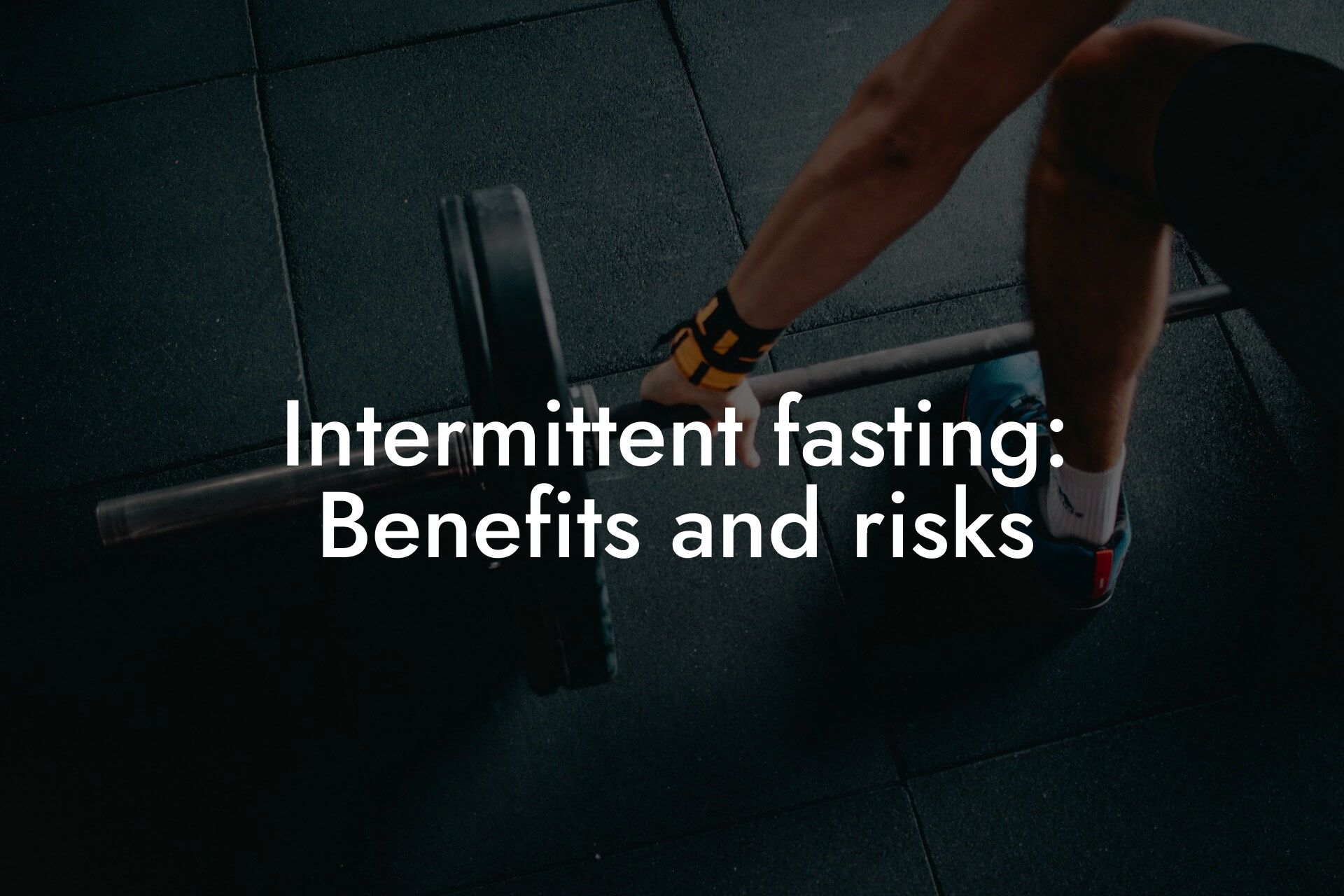As high-earning professionals, you understand the importance of maintaining a healthy physique to perform at your best. However, managing cravings and avoiding diet pitfalls can be a significant challenge. In this article, we will delve into the world of cravings, explore common diet pitfalls, and provide you with practical strategies to overcome them, ensuring you achieve your fitness goals and maintain a healthy, lean physique.
Table of Contents
The Science Behind Cravings
Cravings are complex and influenced by a combination of biological, psychological, and environmental factors. Research suggests that cravings are often triggered by emotional states, such as stress, boredom, or happiness. Additionally, hormonal fluctuations, nutrient deficiencies, and certain medications can also contribute to cravings. Understanding the underlying causes of your cravings is crucial in developing effective strategies to manage them.
Common Diet Pitfalls
Despite our best intentions, many of us fall prey to common diet pitfalls that can hinder our progress and lead to frustration. Some of the most common diet pitfalls include:
• Overreliance on willpower: Relying solely on willpower to resist cravings can be ineffective and lead to feelings of guilt and shame.
• Restrictive dieting: Severely limiting food choices can lead to nutrient deficiencies, disordered eating, and a higher likelihood of bingeing.
• Lack of planning: Failing to plan meals and snacks can lead to poor food choices and overeating.
• Emotional eating: Using food as a coping mechanism for emotional states can lead to unhealthy relationships with food.
Identifying Your Triggers
Identifying your personal triggers is essential in managing cravings and avoiding diet pitfalls. Take time to reflect on your eating habits and identify patterns. Ask yourself:
• What am I feeling when I experience cravings?
• What foods do I typically crave?
• Are there specific situations or events that trigger my cravings?
• How do I typically respond to cravings?
Strategies for Managing Cravings
Now that you have identified your triggers, it's time to develop strategies to manage your cravings. Here are some effective techniques to get you started:
• Stay hydrated: Sometimes, thirst can masquerade as hunger or cravings. Drink plenty of water throughout the day to stay hydrated and reduce cravings.
• Eat regular, balanced meals: Skipping meals or going too long without eating can lead to overeating and poor food choices. Eat regular, balanced meals to keep your hunger and cravings in check.
• Incorporate healthy alternatives: If you're craving a specific food, try finding a healthier alternative. For example, if you're craving ice cream, try having Greek yogurt with fresh berries instead.
• Practice mindful eating: Pay attention to your hunger and fullness cues, savor your food, and eat slowly. This can help reduce cravings and increase satisfaction.
• Get enough sleep: Lack of sleep can increase cravings for unhealthy foods and disrupt hunger hormones. Aim for 7-9 hours of sleep per night.
Avoiding Diet Pitfalls
In addition to managing cravings, it's essential to avoid common diet pitfalls that can hinder your progress. Here are some tips to help you avoid diet pitfalls:
• Focus on addition, not subtraction: Instead of cutting out foods, focus on adding healthy foods to your diet. This can help you feel more positive and empowered about your food choices.
• Set realistic goals: Set specific, achievable goals that align with your lifestyle and preferences. Avoid setting unrealistic goals that can lead to frustration and burnout.
• Seek support: Surround yourself with like-minded individuals who share your fitness goals. Having a support system can help you stay motivated and accountable.
• Practice self-compassion: Remember that setbacks are inevitable. Instead of beating yourself up over a slip-up, practice self-compassion and get back on track.
Using DEXA Scans to Track Progress
At Tano Performance Group, we understand the importance of tracking progress and making data-driven decisions. Our DEXA scans provide a comprehensive body assessment, giving you valuable insights into your body composition, bone density, and other key metrics. By regularly tracking your progress with DEXA scans, you can:
• Monitor changes in body fat percentage and lean mass
• Identify areas for improvement and adjust your diet and training accordingly
• Stay motivated and accountable with regular progress checks
• Make informed decisions about your diet and training with data-driven insights
Managing cravings and avoiding diet pitfalls is a journey that requires patience, self-awareness, and effective strategies. By understanding the science behind cravings, identifying your triggers, and developing strategies to manage cravings, you can overcome common diet pitfalls and achieve your fitness goals. Remember to focus on addition, not subtraction, set realistic goals, seek support, and practice self-compassion. With the help of DEXA scans, you can track your progress and make data-driven decisions to take your physique to the next level.
Frequently Asked Questions
What are cravings and why do I get them?
Cravings are intense desires for specific foods or drinks that can be triggered by various physical, emotional, and environmental factors. They can be caused by hormonal changes, nutrient deficiencies, stress, boredom, or even social pressure. As a high-earning professional, you may experience cravings due to the demands of your job, lack of sleep, or skipping meals, leading to fluctuations in your blood sugar levels and energy crashes.
How can I identify my cravings?
Take notice of when and why you tend to crave certain foods. Are you stressed at work and reaching for comfort foods? Are you bored during meetings and snacking on unhealthy treats? Are you feeling tired and seeking a quick energy boost from sugary drinks? Identifying your triggers and patterns can help you develop strategies to manage your cravings more effectively.
What are common diet pitfalls that can hinder my progress?
Common diet pitfalls include skipping meals, restrictive eating, overexercising, and relying on fad diets or quick fixes. These approaches can lead to nutrient deficiencies, fatigue, and a higher risk of injury. Additionally, they can also trigger cravings and make it more challenging to maintain a healthy weight and physique.
How can I avoid skipping meals?
Plan your meals in advance, and prepare healthy snacks to keep you fueled throughout the day. Aim for three main meals and two to three snacks, spaced evenly apart. Include a balance of protein, complex carbohydrates, and healthy fats in each meal to keep you full and satisfied.
What are some healthy snack options?
Choose snacks that are nutrient-dense and low in added sugars, salt, and unhealthy fats. Some healthy options include fruits, nuts, seeds, carrot sticks with hummus, protein shakes, and energy bars made with wholesome ingredients. Avoid sugary drinks and vending machine snacks that can trigger cravings and hinder your progress.
How can I manage stress and emotional eating?
Develop healthy coping mechanisms, such as meditation, deep breathing exercises, or yoga, to manage stress and emotions. Keep a food diary to track your eating habits and identify patterns. Seek support from friends, family, or a registered dietitian to help you stay on track and develop a more balanced relationship with food.
What role does sleep play in managing cravings?
Sleep deprivation can disrupt hunger hormones, leading to increased cravings for unhealthy foods. Aim for 7-9 hours of sleep each night to help regulate your appetite and metabolism. Establish a relaxing bedtime routine, avoid caffeine and electronics before bedtime, and create a sleep-conducive environment to improve the quality of your sleep.
How can I stay motivated and accountable?
Set realistic goals and celebrate small victories along the way. Share your goals with a friend or family member and ask them to hold you accountable. Join a fitness community or hire a personal trainer to provide support and guidance. Track your progress through measurements, progress photos, or mobile apps to stay motivated and focused.
What are some common nutrient deficiencies that can trigger cravings?
Deficiencies in vitamins B and D, iron, magnesium, and omega-3 fatty acids can trigger cravings for unhealthy foods. Consult with a registered dietitian or healthcare professional to determine if you have any underlying deficiencies and develop a personalized plan to address them.
How can I overcome plateaus and maintain progress?
Reassess your goals and adjust your diet and exercise plan as needed. Incorporate new exercises, try different types of workouts, or increase the intensity and duration of your sessions. Make adjustments to your meal plan, such as adding new foods or increasing portion sizes, to keep your body challenged and responding.
What are some healthy alternatives to my favorite comfort foods?
Find healthier alternatives to your favorite comfort foods by making simple swaps. For example, choose whole-grain pasta instead of white pasta, baked sweet potato fries instead of regular fries, or grilled chicken instead of fried chicken. Experiment with new recipes and ingredients to find healthier options that satisfy your cravings.
How can I handle social pressure and food temptations?
Develop a plan for social situations, such as eating a healthy meal before attending an event or bringing a healthy dish to share with others. Practice assertive responses to decline unhealthy food offers, and focus on the social aspect of gatherings rather than the food. Bring a buddy who shares your health goals to provide support and motivation.
What are some strategies for eating out healthily?
Choose restaurants that offer healthy options, and opt for grilled or baked dishes instead of fried foods. Avoid buffets and all-you-can-eat deals that can lead to overeating. Order smaller portions or share a meal with a friend to keep calorie intake in check.
How can I stay on track during holidays and special occasions?
Plan ahead by preparing healthy meals and snacks, and bringing a dish to share with others. Focus on the social aspect of gatherings rather than the food, and practice moderation when indulging in treats. Don't deprive yourself of your favorite foods, but instead, find healthier alternatives or enjoy them in limited portions.
What are some common mistakes people make when trying to manage cravings?
Common mistakes include restrictive eating, relying on willpower alone, and neglecting overall health and wellness. Avoid fad diets, quick fixes, and unrealistic expectations, and instead, focus on developing a balanced relationship with food and a sustainable lifestyle.
How can I overcome emotional eating?
Identify your emotional triggers and develop healthy coping mechanisms, such as journaling, meditation, or talking to a friend. Practice mindful eating by savoring your food, paying attention to hunger and fullness cues, and eating slowly. Seek support from a registered dietitian or therapist to help you overcome emotional eating.
What role does hydration play in managing cravings?
Dehydration can masquerade as hunger, leading to cravings for unhealthy snacks. Drink plenty of water throughout the day, aiming for at least eight glasses. Monitor your urine output and color to ensure you're staying hydrated, and avoid sugary drinks that can trigger cravings.
How can I make healthy choices when traveling?
Research healthy restaurants and meal options before traveling, and pack healthy snacks to keep you fueled. Avoid relying on convenience stores and fast food, and instead, opt for whole foods and balanced meals. Stay hydrated by drinking plenty of water, and avoid sugary drinks and caffeine that can disrupt your hunger hormones.
What are some healthy ways to reward myself?
Reward yourself with non-food items, such as a new workout outfit, a massage, or a relaxing bath. Choose experiences, like trying a new workout class or taking a weekend getaway, instead of relying on food rewards. Celebrate small victories with healthy treats, such as a piece of fresh fruit or a handful of nuts, to keep your diet on track.
How can I maintain a healthy work-life balance?
Prioritize self-care by scheduling time for exercise, meditation, and relaxation. Set boundaries with work and technology to protect your personal time, and delegate tasks when possible. Make time for activities that bring you joy and fulfillment outside of work, and seek support from friends, family, or a therapist when needed.
What are some common misconceptions about cravings and dieting?
Common misconceptions include believing that cravings are a sign of weakness, that dieting requires extreme restriction, and that willpower is the only solution. Instead, focus on developing a balanced relationship with food, listening to your body's hunger and fullness cues, and making sustainable lifestyle changes.
How can I get support and guidance on my health journey?
Seek support from friends, family, or a registered dietitian to help you stay on track and develop a personalized plan. Join a fitness community or online forum to connect with like-minded individuals and stay motivated. Consult with a healthcare professional to address any underlying health concerns or nutrient deficiencies.
Here are some related articles you might love...
- Hydration and its impact on performance and physique
- Supplements that support body composition goals
- Intermittent fasting: Benefits and risks
- The importance of protein for muscle growth
- Macronutrient balance for physique enhancement
- Best diets for reducing body fat
- Nutrition tips for busy professionals
- How to meal prep for body composition goals
- How to eat for bone health
Zak Faulkner
Zak Faulkner is a leading authority in the realm of physical health and body composition analysis, with over 15 years of experience helping professionals optimise their fitness and well-being. As one the experts behind Tano Performance Group, Zak has dedicated his career to providing in-depth, science-backed insights that empower clients to elevate their physical performance and overall health.
With extensive knowledge of DEXA technology, Zak specializes in delivering comprehensive body assessments that offer precise data on body fat, muscle mass, bone density, and overall physique. His expertise enables individuals to make informed decisions and achieve their fitness goals with accuracy and confidence. Zak’s approach is rooted in a deep understanding of human physiology, combined with a passion for helping clients unlock their full potential through personalised strategies.
Over the years, Zak has earned a reputation for his commitment to excellence, precision, and client-focused service. His guidance is trusted by top professionals who demand the best when it comes to their health. Whether advising on fitness programs, nutritional strategies, or long-term wellness plans, Zak Faulkner’s insights are a valuable resource for anyone serious about taking their health and fitness to the next level.
At Tano Performance Group, Zak continues to lead our Content Team revolutionising how professionals approach their physical health, offering unparalleled expertise that drives real results.




